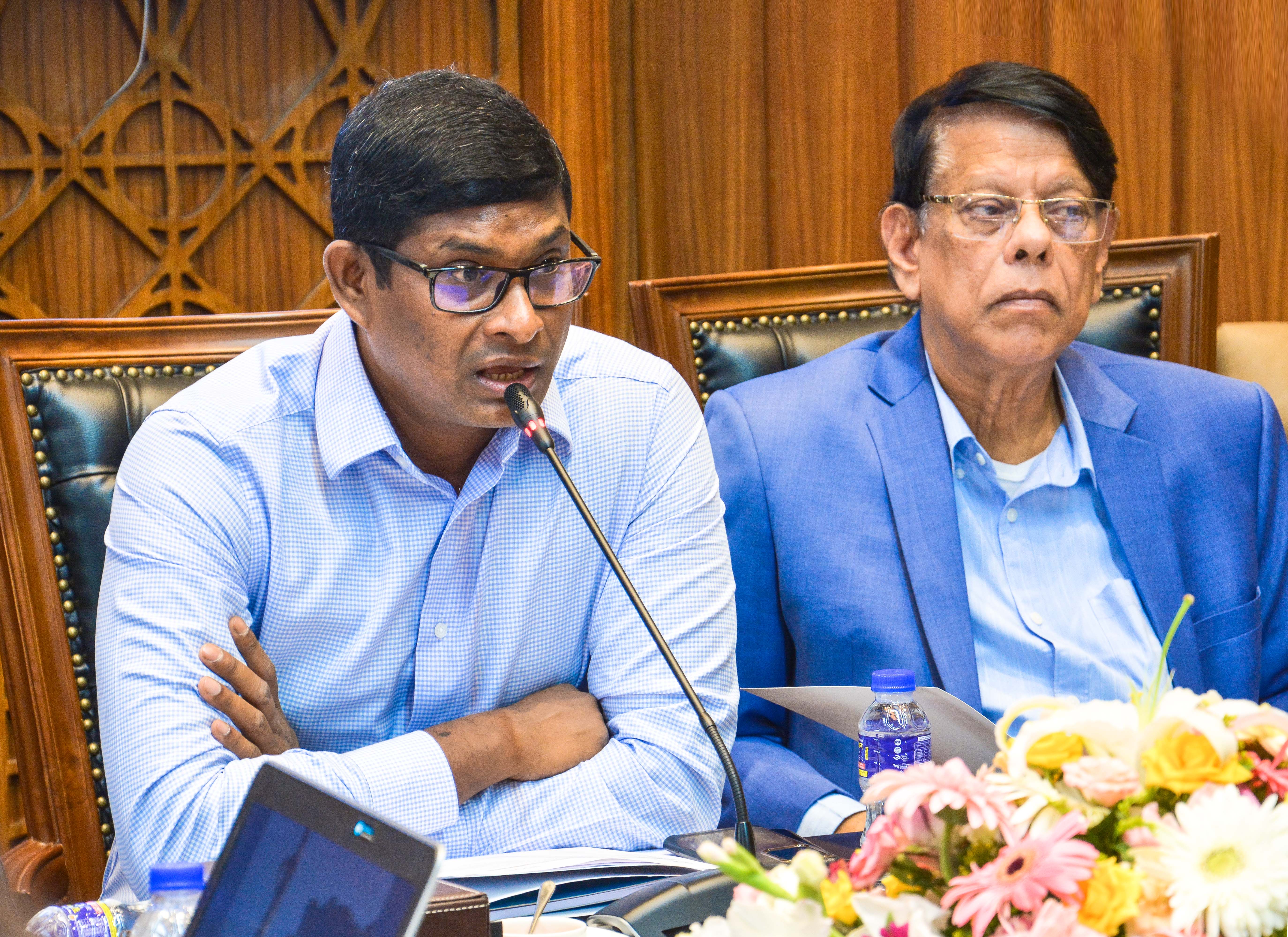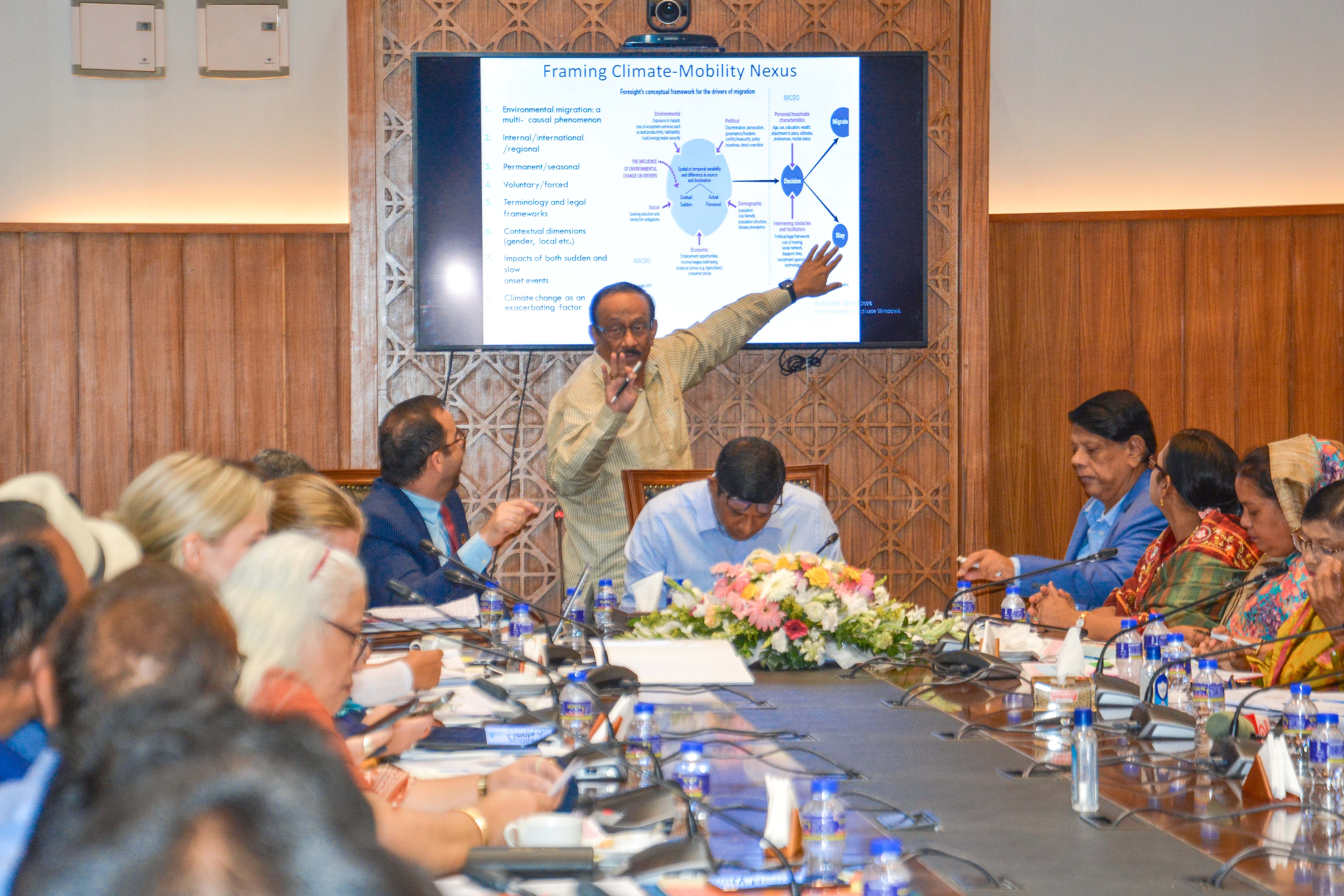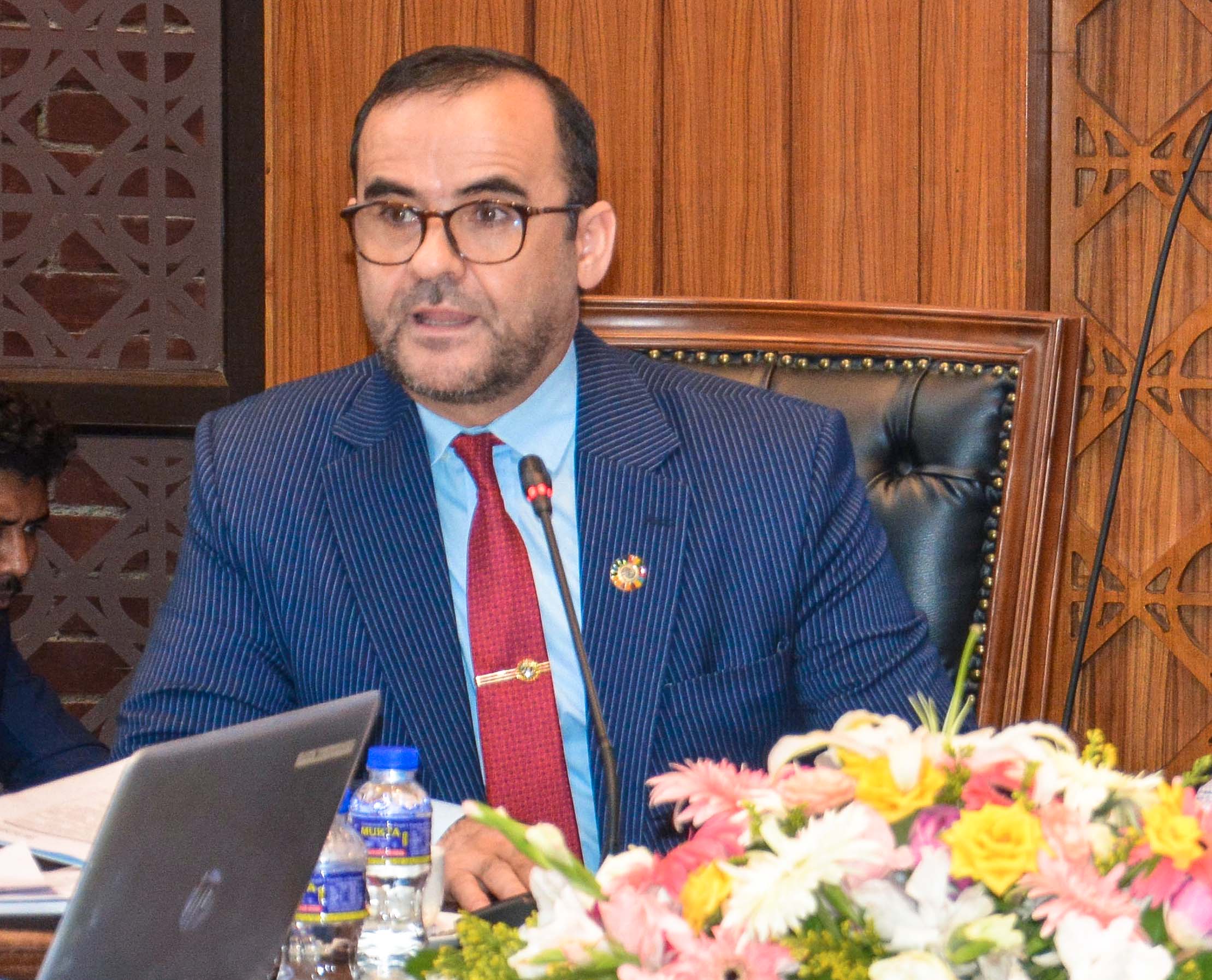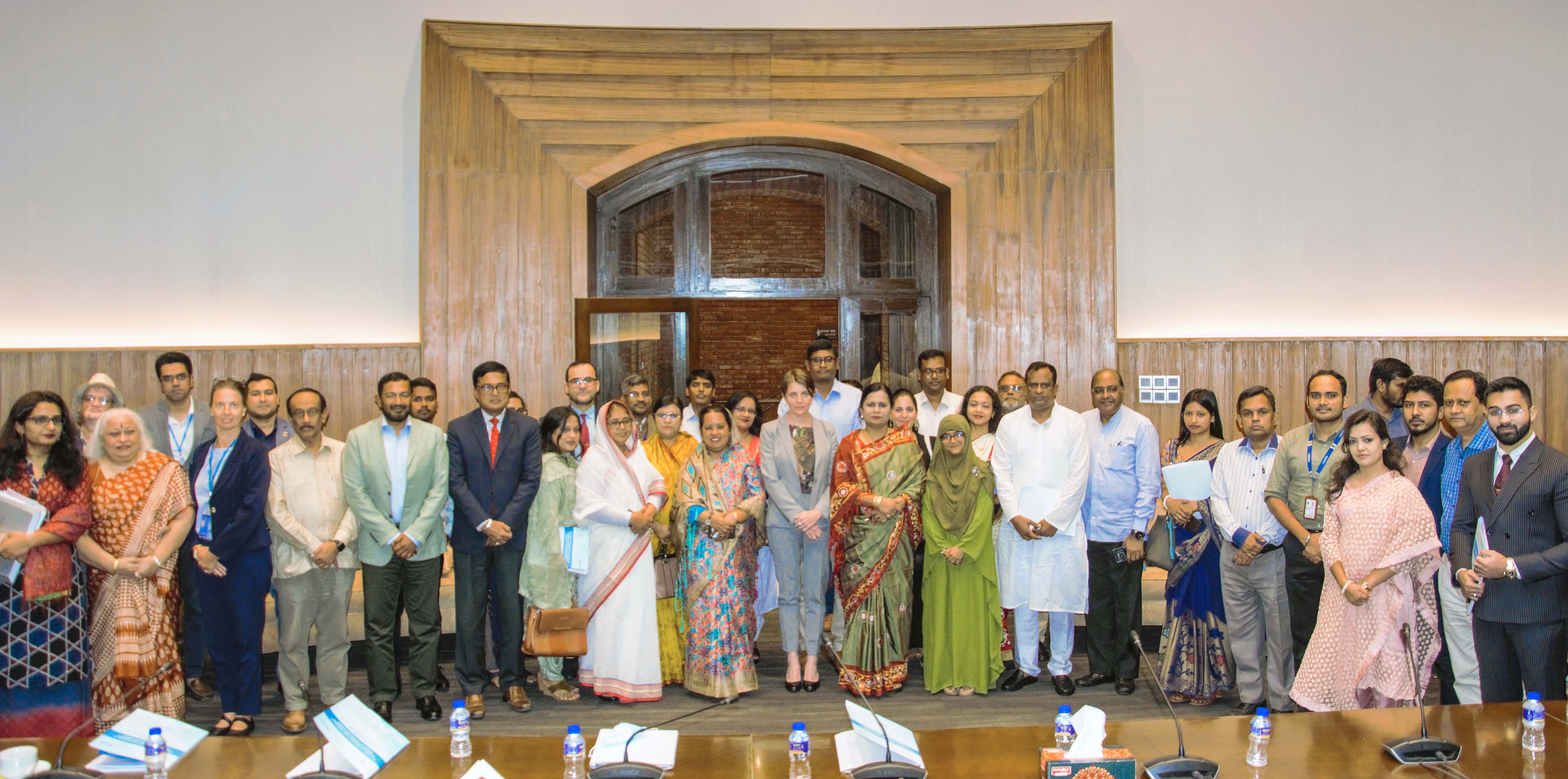-
Who We Are
WHO WE AREIOM is the leading inter-governmental organization promoting humane and orderly migration for the benefit of all, with presence in over 100 countries. IOM has had a presence in Bangladesh since 1998.
About
About
IOM Global
IOM Global
-
Our Work
Our WorkAs the leading inter-governmental organization promoting humane and orderly migration, IOM plays a key role to support the achievement of the 2030 Agenda through different areas of intervention that connect both humanitarian assistance and sustainable development. IOM's objective in Bangladesh is to promote migration that protects and benefits migrants and their societies.
Cross-cutting (Global)
Cross-cutting (Global)
- Data and Resources
- Take Action
- 2030 Agenda
Bangladesh redoubles efforts to include migration and human mobility in climate change discussions
24 October 2022, Dhaka: Climate change and its impacts are major drivers of both internal and international migration and displacement in Bangladesh. Engagement with the international community will be essential in supporting the government and people of Bangladesh to address these issues.
The Twenty Seventh Conference of the Parties (COP 27) to the United Nations Framework Convention on Climate Change (UNFCC) is a perfect platform to ensure that climate change discussions include migration and human mobility dynamics to ensure that safe, humane, and orderly solutions are provided for people who are staying, people on the move, and those who have moved due to climatic effects.
Participants at the pre-COP 27 National Consultation on Climate Change and Human Mobility in Bangladesh emphasized that climate factors are already playing a primary role in migration and displacement in Bangladesh. They called for a quick action and better planning to mitigate the worst effects of climate change.
Today, on October 24, 2022, the Bangladesh Parliamentarians’ Caucus on Migration and Development and the International Organization for Migration (IOM) Bangladesh, in collaboration with the WARBE Development Foundation, Bangladesh Center for Governance and Development, Dhaka International University, and Center for Atmospheric Pollution Studies (CAPS), held a consultation on human mobility and climate change at the Parliament Members’ Club in Dhaka. The consultation aimed to produce an outcome document to be tabled by the Government of Bangladesh at COP 27. The document will also be discussed at the side-event at COP 27 to be jointly organized by the Ministry of Foreign Affairs, Bangladesh, the Climate Vulnerable Forum (CVF) and IOM.
The impacts of climate change will displace one in seven people in Bangladesh by 2051. If no immediate action is taken, with a projected half-meter sea-level rise, Bangladesh could lose up to 11 per cent of its land.

Barrister Shameem Haider Patwary MP, Chairperson of the Bangladesh Parliamentarians’ Caucus on Migration and Development, said, “for Bangladesh, the impacts of climate change, including environmental degradation and natural disasters, increasingly contribute to displacement and migration.”
"It is imperative that governments incorporate climate migration into national development plans and policies," he added.
Overall, the number of Bangladeshis displaced by the impacts of climate change could reach 13.3 million by 2050, making it the country’s number one driver of internal migration, according to the World Bank.
Gwyn Lewis, United Nations Resident Coordinator in Bangladesh, reflected, "As the world witnesses increasingly severe climatic disasters, human mobility in the context of climate change needs to be recognized and addressed more urgently in climate change negotiations. Each and every person displaced by climate change has the right to receive support to recover and rebuild their lives."
Abdusattor Esoev, IOM Bangladesh’s Chief of Mission stressed that "the current unprecedented level of international and internal migration across the globe is being driven not only by economic, social, and geopolitical forces but also by the effects of climate change. While we all acknowledge the need for swift climate action, at this stage we need to also be prepared for the migratory impacts of climate change too."
Salinity intrusion, cyclones, and storm surges are all significant negative drivers of migration and displacement in Bangladesh's 710-kilometer-long coastal belt. Drought and dwindling freshwater resources have forced residents to relocate to the country's north; landslides have made people homeless in the hill tracts, while riverbank and coastal erosion have displaced people all around the country.

Presenting his keynote address, Professor Shahidul Huq, Senior Policy Advisor for IOM Bangladesh and Former Foreign Secretary noted the urgent need to take action on migration, environment and climate change issues. Members of the Bangladesh Parliamentarians’ Caucus on Migration and Development and civil society organizations were participants in the discussions and echoed the calls for immediate action.



